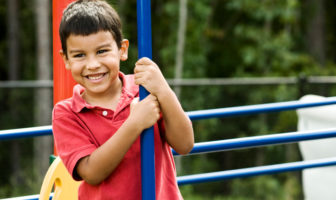Read this article for information on what parents can do to curb sibling bullying.

Tips for Positive Parenting: Safe, Effective Discipline
All parents want to do their best to raise healthy, happy children. We all have times when we lose our patience and need some extra help. Getting support and information is the key to positive parenting. That’s why we have the following ideas about how to effectively, safely, and compassionately discipline your child.
Here are sound guiding principles, no matter your child’s age:
- Be consistent: At an early age, let children know that you mean what you say by following through consistently. Not only does this make discipline more effective, it sets your child up with a feeling of reliability across the board as they know you will not change things at the last minute.
- Seize positive moments: Just as it is important to discourage negative behavior, it is also essential to catch your child in the act of doing something good. Reward positive behavior with praise and privileges.
- Seek to discipline without hitting: Contrary to popular belief, studies show that spanking is not an effective way to discipline and can even lead to children misbehaving in other new ways.
- Listen to your children: Do your best to respect their point of view. When children feel listened to, they are more likely to listen to you and do their best to follow house rules.
- Love the child, correct the behavior: Express disapproval of their behavior, not of the child. When a child misbehaves, it is often when they most need your love – they may even be misbehaving to get attention. Remind them that as a person, they are special to you.
- Be a good role model: Model the behavior you’d like to see in your children. They learn their best habits from watching how you talk to others, take care of business, and express yourself.
- Establish consequences ahead of time: Pick consequences that are age-appropriate and fit the misbehavior. Let your child know what will happen if the rule is broken, e.g., “If a toy is thrown, I will take it away.”
From these general guidelines, you can then structure discipline according to your child’s age.
Infants do not “act out” or misbehave and typically cry because they are hungry, tired, or want to be held. Learning your baby’s cues and taking deep breaths will help keep you both grounded. Toddlers are learning fast but still young, so limit the number of rules they have to remember. Setting them up for success is often more effective than correcting after the fact. You can move breakable or dangerous things out of their reach and redirect them by handing them something more suitable to play with.
Preschoolers benefit from routines such as a bedtime story, in order to feel secure. Limited choices rather than open-ended questions can help them feel confident; for example, rather than asking what they want to wear today, consider asking them to pick between two specific outfit options. Plan transitions between activities by telling your child, “When you finish your juice, it’s bath time.”
With older children, listening to their point of view is just as critical as when they were younger, as they will also want to have input on making the rules with you. If they help craft them, they are more likely to follow the rules. Be clear and specific; for example, saying “don’t be home late” is vague but “be home by 9 pm” is very clear and unlikely to lead to misunderstanding. Consider establishing a special policy for if your child ever finds themselves in a dangerous situation: let them know you’d prefer they come home safe than be risky to avoid punishment. Design this with them, and save it for emergencies.
Disciplining your children is a complex topic, and everyone will have different opinions on how best to do it. We hope these guiding principles to positive parenting will bring you and your children closer to each other by fostering clear expectations and mutual respect.
other articles and videos we love
There are many ways parents can encourage emotionally intelligent behavior in their children. Check out this guide to resources for learning more about character development.
It’s not enough to teach kids what not to do; we also have to teach them what to do to promote kindness and compassion among their peers. Check out this article for ways to do just that.






